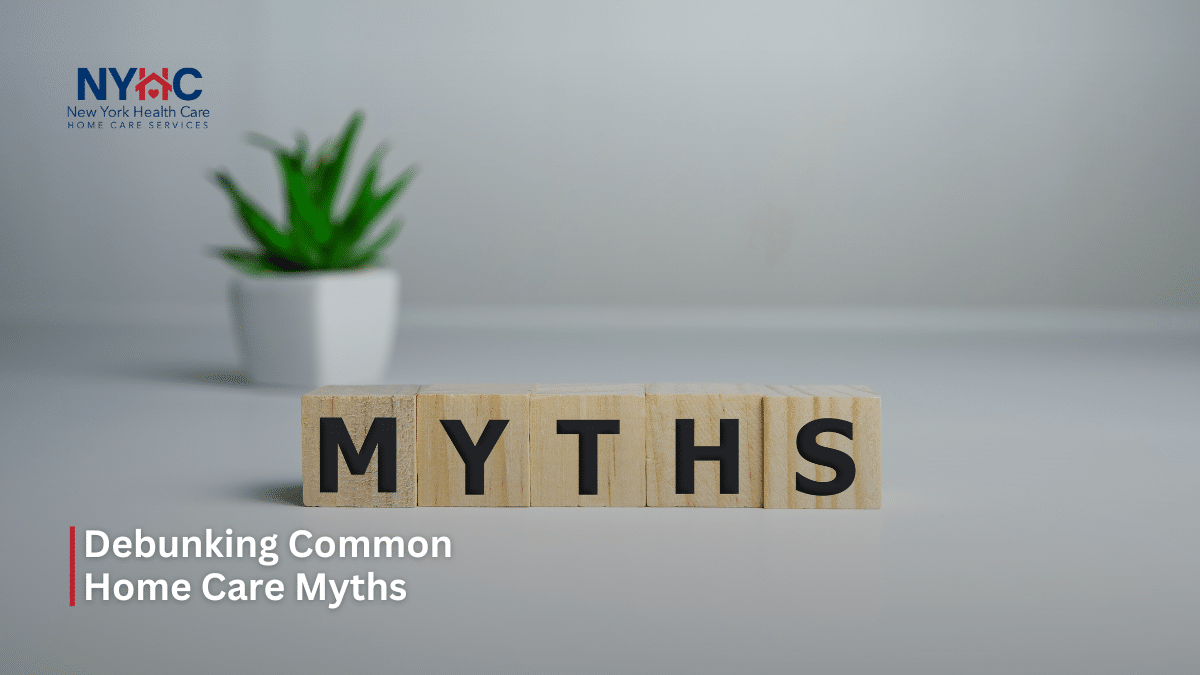There are several questions surrounding Home Care that can prevent individuals from accessing vital services. In this post, we’ll clarify what home care really is and debunk some of the most common myths surrounding it.
What is Home Care?
Home care refers to a range of health and social services that are provided in a patient’s home to support their daily living needs. This can include assistance with personal care, medication management, therapy services, and companionship. Home care is designed to help individuals maintain their independence while receiving the care they need in a familiar environment.
Common Myths About Home Care
Myth 1: Home Care is Too Expensive
Many people believe that home care services are prohibitively expensive, but this isn’t necessarily the case. In New York State, for example, home care services can be available at no out-of-pocket cost through the NYS Medicaid Program. Here’s how it works:
- Contact Your Local Medicaid Office: Start by reaching out to your local Medicaid office to apply for coverage.
- Assessment Process: For patients over 18 years old, a NYIA assessment will determine the need for home care services. For those under 18 years old, a physician’s order is required to evaluate the necessity of care.
These processes help ensure that individuals receive the support they need without financial strain. New York Health Care is here to support individuals every step of the way. To learn more contact us at 718-247-8001 or www.nyhc.com.
Myth 2: Home Care is Only for Seniors
Another prevalent myth is that home care is exclusively for the elderly. In reality, home care services cater to individuals of all ages. Whether it’s a child recovering from surgery, a young adult with a disability, or a senior managing chronic conditions, home care can provide essential support tailored to specific needs.
Myth 3: Home Care is Only for Short-Term Needs
Some people believe that home care is limited to short-term situations, but that’s far from the truth. Home care can accommodate a wide range of needs, including long-term care.
- Flexible Hours: NYIA and health assessments conducted by contracted providers help determine the number of hours of care approved for each case.
- 24/7 Care: In fact, many patients have been approved for up to as many as 24 hours/split shifts to ensure round-the-clock support based on patient need after being assessed. This flexibility allows individuals to receive consistent care tailored to their specific situations.
Conclusion
Understanding the realities of home care can empower individuals and families to seek the help they need without the burden of misconceptions. By debunking these common myths, we hope to encourage more people to explore home care options that enhance quality of life, independence, and well-being. If you or a loved one are considering home care, don’t hesitate to reach out to local resources and professionals who can guide you through the process. Your path to better care begins at home!

